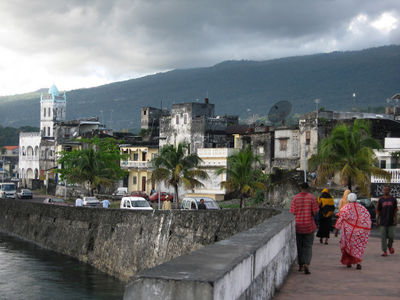Gynopedia needs your support! Please consider contributing content, translating a page, or making a donation today. With your support, we can sustain and expand the website. Gynopedia has no corporate sponsors or advertisers. Your support is crucial and deeply appreciated.
Moroni
OVERVIEW
Contraception (Birth Control)
General Note: There are many types of contraceptives, also known as "birth control," including IUDs, oral contraceptives, patches, shots, and condoms, etc. If you would like to view a full list, click here.
Laws & Social Stigmas
In the Comoros, contraceptive options are available, though not all women have access to them. The United Nations Family Planning Association (UNFPA) helps provide contraception to the Ministry of Health, which distributes contraception to hospitals and health centers across the country. In 2012, it was estimated that about 32% of women in the Comoros had demand for family planning, and women in urban areas tended to use modern contraception at higher rates (21% of women) than women in rural areas (11% of women). Some of the factors that contribute to women's access to contraception included general awareness and education, religious and cultural beliefs, the role that men and traditional authority figures played in their lives, as well as their geographic locations.[1]
What to Get & Where to Get It
Costs
Emergency Contraception (Morning After Pill)
Important Notes: Emergency contraception may prevent pregnancy for three days (72 hours) and sometimes five days (120 hours) after unprotected sex. Take EC as soon as possible after unprotected sex. If you don't have access to dedicated EC, oral contraceptives can be used as replacement EC, but remember the following: 1) Only some contraceptives work as EC 2) Different contraceptives require different dosages and time schedules to work as EC 3) You must only use the first 21 pills in 28-day packs and 4) They may be less effective than dedicated EC. For general information on emergency contraceptives, click here and here.
Laws & Social Stigmas
What to Get & Where to Get It
Note: The longest-lasting EC is currently ellaOne. It lasts up to 5 days (120 hours) after unprotected sex. Check to see if your country carries ellaOne. If your country doesn't carry ellaOne, copper IUDs may also prevent pregnancy up to 5 days after unprotected sex. If none of these options are available, and it's been over 3 days since you had unprotected sex, you can still take EC, which may work up to 5 days. Note that EC pills are not 100% effective and should be taken as soon as possible.
Costs
Sexually Transmitted Infections (STIs/STDs)
Important Notes - Learn about PEP and PrEP: If you think that you've been recently exposed to HIV (i.e. within 72 hours), seek out PEP (Post-Exposure Prophylaxis). It's a month-long treatment to prevent HIV infection after exposure, and it may be available in your city. Take PEP as soon as possible. For more information, click here. If you are at risk of HIV exposure, seek out PrEP (Pre-Exposure Prophylaxis). It's a daily oral pill that can prevent HIV infection before exposure. To learn more about PrEP, click here.
Laws & Social Stigmas
What to Get & Where to Get It
Testing Facilities
Support
Costs
Medications & Vaccines
Laws & Social Stigmas
What to Get & Where to Get It
Costs
Menstruation
Note: In addition to pads and tampons, you can also use menstrual cups and menstrual underwear for your period. To learn more about menstrual cups, click here. To learn more about menstrual underwear, click here.
Laws & Social Stigmas
What to Get & Where to Get It
Costs
Gynecological Exams
Laws & Social Stigmas
What to Get & Where to Get It
Costs
Pregnancy
Laws & Social Stigmas
What to Get & Where to Get It
Costs
Abortion
Important Note: There are two main types of abortions: medical (also known as the "abortion pill") and surgical (also known as "in-clinic"). For medical abortions, you take a pill to induce abortion. For surgical abortions, a procedure is performed to induce abortion. For general information about medical and surgical abortions, click here.
Laws & Social Stigmas
What to Get & Where to Get It
Costs
Advocacy & Counseling
Laws & Social Stigmas
What to Get & Where to Get It
Costs
List of Additional Resources
- The Association Comorienne pour le Bien-Être Famille (ASCOBEF): "The Association Comorienne pour le Bien-Être Famille (ASCOBEF) is delivering a comprehensive range of sexual and reproductive health programmes and services. These include family planning, gynaecological counselling and services, antenatal care, information, education and communication (IEC) programmes and behaviour change communications (BCC) activities to promote health-seeking behaviour. It is also playing a major advocacy role in the fight against gender-based violence, and has provided extensive victim support." This is an affiliate of the International Planned Parenthood Association.
- World Health Organization - Comoros
- UNFPA Comoros
- Family Planning 2020
- Equaldex - Comoros: This websites provides information on LGBTQ rights and laws in the Comoros. It is important to understand that homosexuality is illegal, as of March 2019.
References
